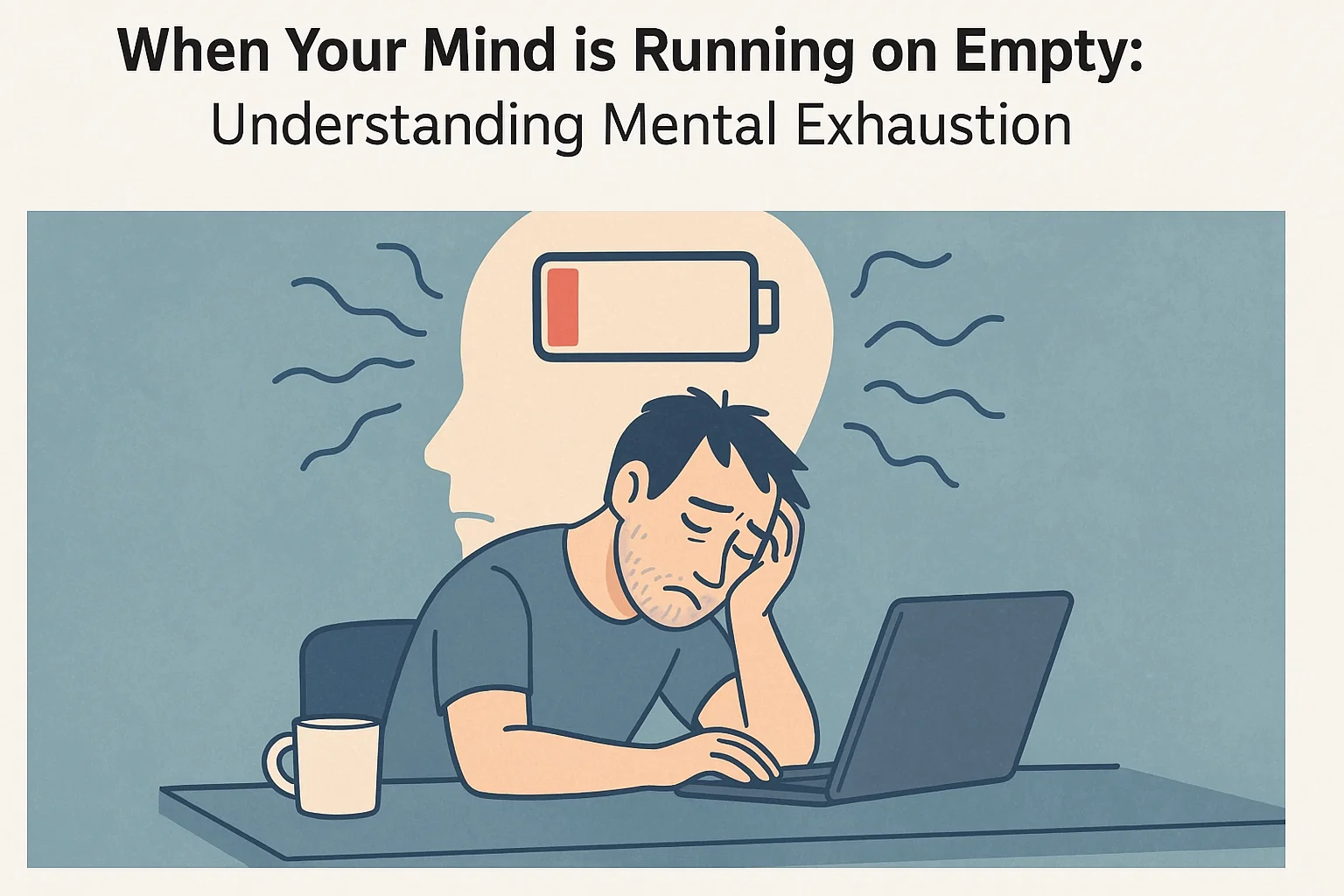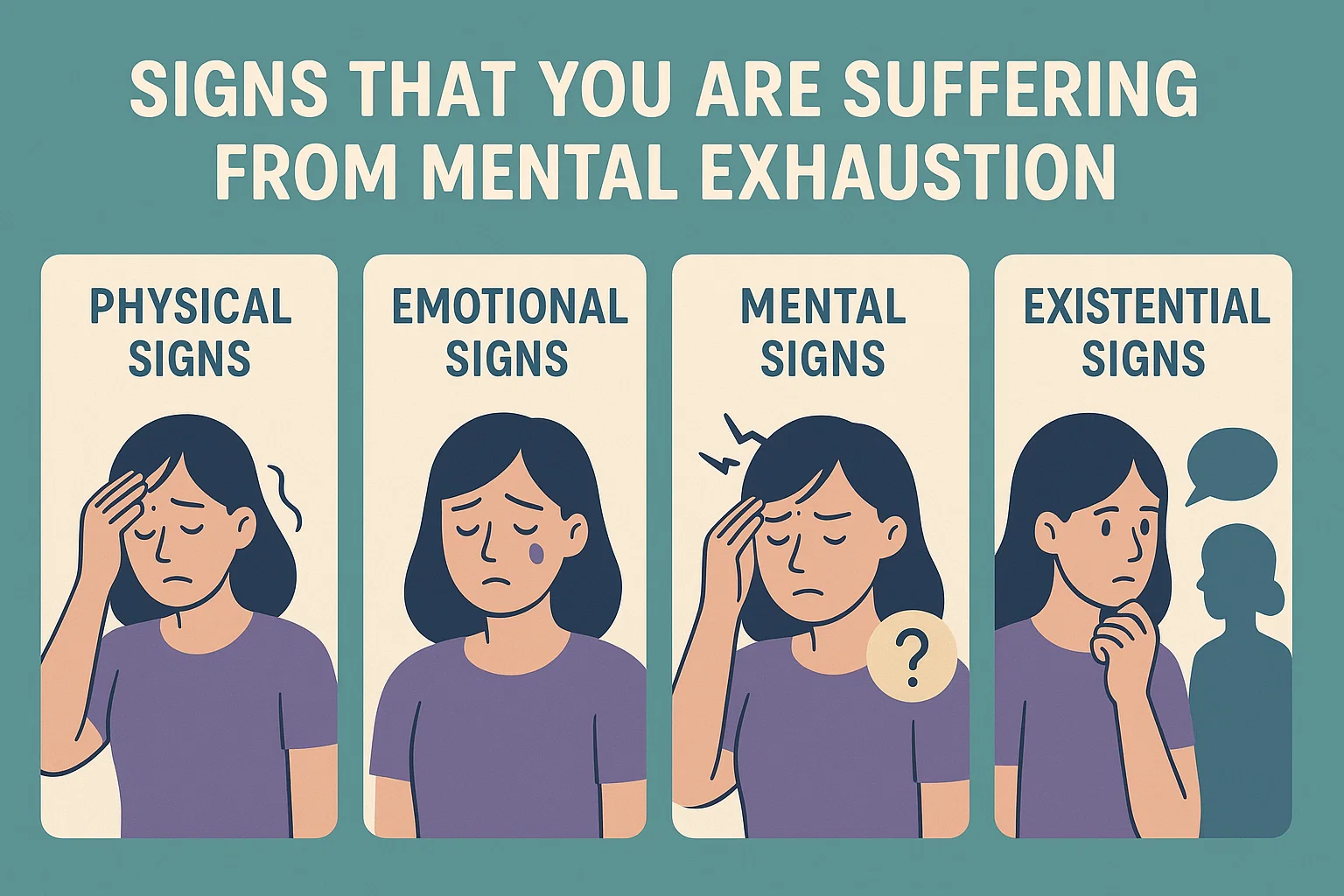When Your Mind is Running on Empty: Understanding Mental Exhaustion

Have you ever felt completely mentally and emotionally exhausted after a long day at work or dealing with personal challenges? That is the feeling of mental exhaustion, a state wherein your mind feels overwhelmed and unable to function at its best.
The latest statistics on mental exhaustion in the workplace reveal that a majority of employees undergo feelings of being overburdened and drained at some point in their careers. Glassdoor conducted a survey wherein employees provided anonymous reviews of their companies, and they have observed an increase in mentions of mental exhaustion in recent years. It has become a medically recognized condition affecting 77% of employees, meaning that a significant majority of your coworkers may have already experienced or are currently experiencing this condition.
What is Mental Exhaustion?
The human mind is a magnificent entity capable of incredible feats. However, our minds, like any other part of our bodies, have limits, and when we reach the limit, we become mentally exhausted...
Causes of Mental Exhaustion
Mental exhaustion can be caused by several factors, and understanding them can assist individuals in taking proactive measures to prevent it. Here are some possible causes:
- Work-related stress: Excessive workload, long work hours, lack of control over work, and lack of support at work can mentally impact you.
- Personal problems: Relationship issues, financial stress, caring for a sick family member, or other personal issues can take a toll on one's mental health.
- Trauma: Experiencing or witnessing traumatic events such as accidents, violence, or abuse can lead to mental exhaustion.
- Chronic illness: Living with a chronic illness, such as chronic pain or a mental health disorder, can be emotionally and physically draining.
- Lifestyle: Poor sleep habits, unhealthy eating, lack of exercise, and excessive technology use all contribute to mental exhaustion.
Signs That You Are Suffering from Mental Exhaustion

Mental exhaustion symptoms may begin as minor, but they can escalate quickly. Here are some of the most common symptoms:
- Physical Signs: Headaches, muscle pain, digestive problems, and insomnia.
- Emotional Signs: Sense of detachment, feelings of sadness or hopelessness, and lack of interest in previously enjoyable activities.
- Mental Signs: Increased irritability, anxiety, frequent zoning out, appetite changes, and substance use as a coping mechanism.
- Existential Signs: Reduced sense of personal accomplishment, lack of motivation, and feelings of meaninglessness.
- Social Signs: Relationship issues, social withdrawal, and isolation.
Frequently Asked Questions
What is mental exhaustion?
Mental exhaustion is a state of extreme mental fatigue caused by stress or overwork, impacting focus and well-being.
What causes mental exhaustion?
It stems from prolonged stress, multitasking, or lack of rest, common in high-pressure roles.
How can coaching help with mental exhaustion?
Coaching, like xMonks’ programs, offers strategies to manage stress and restore mental energy.
Who is at risk of mental exhaustion?
Professionals, leaders, and caregivers juggling multiple responsibilities are most vulnerable.
How can I prevent mental exhaustion?
Join xMonks’ ICF-accredited programs to learn mindfulness and time management techniques.




.png)